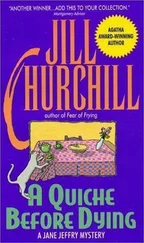Peter Dickinson - Some Deaths Before Dying
Здесь есть возможность читать онлайн «Peter Dickinson - Some Deaths Before Dying» весь текст электронной книги совершенно бесплатно (целиком полную версию без сокращений). В некоторых случаях можно слушать аудио, скачать через торрент в формате fb2 и присутствует краткое содержание. Год выпуска: 1999, ISBN: 1999, Издательство: Mysterious Press, Жанр: Старинная литература, на английском языке. Описание произведения, (предисловие) а так же отзывы посетителей доступны на портале библиотеки ЛибКат.
- Название:Some Deaths Before Dying
- Автор:
- Издательство:Mysterious Press
- Жанр:
- Год:1999
- ISBN:9780446561099
- Рейтинг книги:3 / 5. Голосов: 1
-
Избранное:Добавить в избранное
- Отзывы:
-
Ваша оценка:
- 60
- 1
- 2
- 3
- 4
- 5
Some Deaths Before Dying: краткое содержание, описание и аннотация
Предлагаем к чтению аннотацию, описание, краткое содержание или предисловие (зависит от того, что написал сам автор книги «Some Deaths Before Dying»). Если вы не нашли необходимую информацию о книге — напишите в комментариях, мы постараемся отыскать её.
Some Deaths Before Dying — читать онлайн бесплатно полную книгу (весь текст) целиком
Ниже представлен текст книги, разбитый по страницам. Система сохранения места последней прочитанной страницы, позволяет с удобством читать онлайн бесплатно книгу «Some Deaths Before Dying», без необходимости каждый раз заново искать на чём Вы остановились. Поставьте закладку, и сможете в любой момент перейти на страницу, на которой закончили чтение.
Интервал:
Закладка:
Dilys thought no worse of a patient for that; such feelings were human, and therefore proper; even those whose spirits grovelled and whimpered and pleaded had her respect. But there were others who, though their minds might be almost wholly gone, seemed still to register that there were no ears to hear the whimpers, no eyes to perceive the abasement, no court to consider the pleas. In their faces as they slept she believed she could see that these old things were heroines and heroes, and she felt proud in their pride. Her job, her mission, was to make sure that until the moment they carried it into darkness that flame still burned.
She had never had a lover. As a girl she had let herself be kissed and fumbled with a bit, because that had been the way of things, but she’d found it an uncomfortable pastime, arousing sensations that didn’t seem to belong to the Dilys she knew and understood. She had not been handsome enough to provoke real eagerness and so had had little trouble in persuading the fellow to desist, and before she was thirty had recognised, with some relief, that unless a crazy took it into his head to rape her, she would die a virgin.
She had sometimes been asked, since she had what people thought a motherly look, whether she minded not having had children. Not wishing to appear heartless, she had answered that she supposed so, but in truth, as far as she could see or feel, she had missed nothing she wanted. In her training she had done a routine course in the obstetric wards and—again because it had been expected of her—she had cooed and admired like a good ’un, but inwardly she had never been able to think of babies as anything more than the main symptom of a common female complaint which she had luckily been spared.
These weren’t coherent, verbalised beliefs, but unformulated feelings, and of course she had never talked about them to anyone, being sure that her life would be considered arid and repressed. It wasn’t. She found her work utterly fulfilling. When, in the ripeness of time, a patient died, she didn’t grieve. If anything, she glowed. A life had run its full course. Over the years she had seen a lot of television which she wouldn’t otherwise have bothered with, because patients often liked a companion to whom they could comment about the programmes they chose. It helped keep them perky, which was one of her main objectives. Ladies liked soaps and gentlemen liked sport. That was how she’d come to see a programme about a sprint relay team, and the gentleman in question, Admiral Poskett, had suddenly cackled and said, “That’s what you are, Dilys. You’re my last lap coach.” He’d been right. When the coach had talked about the satisfaction of seeing his team run at their peak he had put into words many of Dilys’s own feelings as she closed the eyes and laid the body straight. She had helped her patient live those last months and die that death as well as they could be lived and died.
Not that she was ever impatient for the death. It was the living that counted. Once she had connived with a doctor to allow a patient to escape from endless pain. Once she had, effectively, permitted a strong-willed old man to starve himself to death. But once she had fought by every means she could against a family and doctor who wanted to make an end, when Dilys herself was sure that the patient, stone blind, four-fifths deaf, and in pain, still raged against the necessity. It was fourteen years since Dilys had lost that fight, and she still minded.
This morning, before she was fully into the room, Dilys knew that for the third morning running Mrs. Matson was already awake after a bad night. Her nose told her. She didn’t find the inevitable reeks of old age offensive—how could she, after all these years?—but she didn’t let habit blank them out. They were useful. To her, there was an obvious difference between the odours produced by someone contentedly wetting and soiling themselves in their sleep, and those that arose in the miseries of wakefulness. There was a particular sourness among the mix of smells—acids or something, but no one would have done the research. It was the sort of thing nurses knew and doctors weren’t around to notice. She was already tutting as she opened the curtains.
“We’ve not been sleeping, have we? You should’ve let me give you that pill—drinkie before I see to you?”
She eased the withered body up and tilted the glass against lips that were dry as paper, giving them time to sip and sip. There was a microphone suspended above the pillow that amplified every whisper into Dilys’s room. Other patients would have called for a drink several times in the night.
“Thank you,” Mrs. Matson whispered. “Pills make me stupid next day.”
“There’s that,” said Dilys. “Now let’s tidy you up. Brooding about Mr. Matson, still, were we?”
“Not brooding. Thinking.”
“Brooding’s just thinking and not getting anywhere, so you may as well stop, only you can’t.”
“Got somewhere. Perhaps. At last. When you’ve finished. Filing cabinet. Top drawer, near back. Cambi Road. C.A.M….”
“I remember, dearie—that address list, came a few weeks back, you were telling me where to put it only Mrs. Thomas came in and she said she knew.”
“Yes. Bring the list.”
“Soon as I’ve done. Amazing they’ve kept it going this long, getting out a proper address list every year, and all. My dad’s lot—I told you he was in Shangar, didn’t I?—they used to have get-togethers for a bit…”
She rattled purposefully on, as she always did when she was cleaning up, to distract her patient’s attention from the shameful need—they all minded, and rightly so—at the same time with another part of her mind attending to her task, not allowing it to become an automatic process. You could miss little signs…yes, tsk, that was a bedsore trying to start—it’d be those acids again—nothing like that for weeks now…and the trip all the way to London, seven hours in the coach, ’54 that would have been, just finishing at Caernarvon General. Of the thirty-odd in the coach there’d been eight who, like Dad, were still on full disability, and more than a dozen others on half—and not one of them over fifty, including one poor fellow barely ten years older than Dilys herself—which was why they’d taken a real nurse along with them to look after the crocks. Sad as sad it might have been, but they’d sung the whole way to London and the whole way back—“Like a moving chapel,” someone had said, what with a reverend from Llanfairfechan in the party, and hymns as well as the camp songs—they’d made Dilys stop her ears for the rude ones…But well before Dad had died, even, there hadn’t been any of that any more, local fund-raisings for a bit, and a Roneoed newsletter, and then only a few gaunt-faced men among the others on the Armistice Day parade.
“There we are, dearie. All done, and we’ll be comfortable. Now I’ll go and see what they’ve done about our breakfast, shall I?”
“List first, please.”
“My, we’re in a hurry. All right, then.”
The corridor was a long space lit by skylights, narrowed from its original generous width by a set of bookshelves that ran along the wall backing onto Mrs. Matson’s room, which had been the old nursery. The door of Dilys’s bedroom was directly opposite Mrs. Matson’s, with her bathroom and sitting room beyond. All the books on the shelves were photograph albums, identically bound in green cloth with green leather backs. Mrs. Matson had learnt book binding in order to make them the way she wanted. At the end of the book-shelves stood a four-drawer filing cabinet, with the card-index to the albums on top of it.
Dilys didn’t have any doubts about finding the address list. Mrs. Matson knew where every file was, as well as every album. And yes, the Cambi Road file was exactly where she’d said. The list wasn’t in it.
Читать дальшеИнтервал:
Закладка:
Похожие книги на «Some Deaths Before Dying»
Представляем Вашему вниманию похожие книги на «Some Deaths Before Dying» списком для выбора. Мы отобрали схожую по названию и смыслу литературу в надежде предоставить читателям больше вариантов отыскать новые, интересные, ещё непрочитанные произведения.
Обсуждение, отзывы о книге «Some Deaths Before Dying» и просто собственные мнения читателей. Оставьте ваши комментарии, напишите, что Вы думаете о произведении, его смысле или главных героях. Укажите что конкретно понравилось, а что нет, и почему Вы так считаете.









